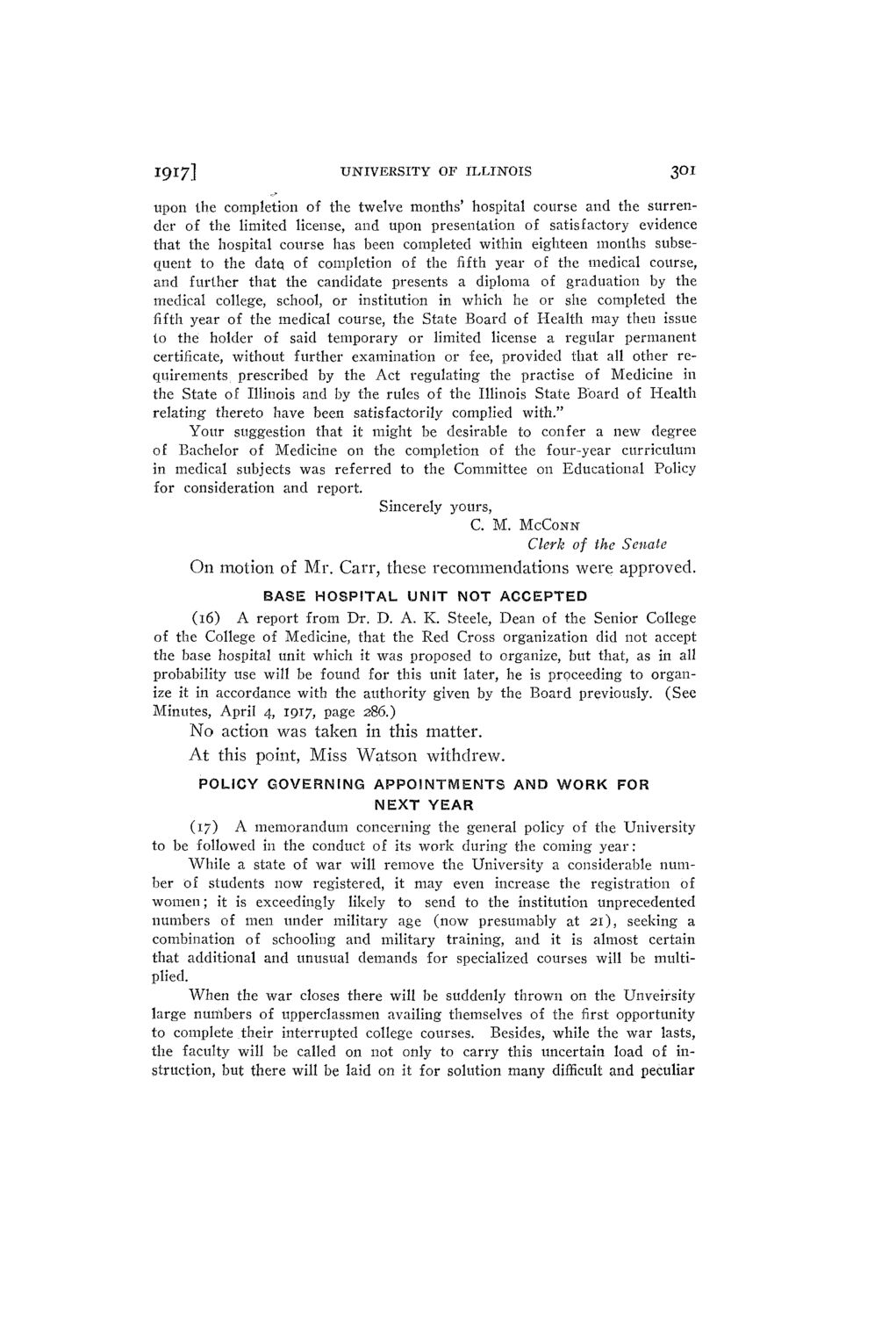| |
| |
Caption: Board of Trustees Minutes - 1918
This is a reduced-resolution page image for fast online browsing.

EXTRACTED TEXT FROM PAGE:
1917] UNIVERSITY OF ILLINOIS 30I upon the completion of the twelve months' hospital course and the surrender of the limited license, and upon presentation of satisfactory evidence that the hospital course has been completed within eighteen months subsequent to the date; of completion of the fifth year of the medical course, and further that the candidate presents a diploma of graduation by the medical college, school, or institution in which he or she completed the fifth year of the medical course, the State Board of Health may then issue to the holder of said temporary or limited license a regular permanent certificate, without further examination or fee, provided that all other requirements prescribed by the Act regulating the practise of Medicine in the State of Illinois and by the rules of the Illinois State Board of Health relating thereto have been satisfactorily complied with." Your suggestion that it might be desirable to confer a new degree of Bachelor of Medicine on the completion of the four-year curriculum in medical subjects was referred to the Committee on Educational Policy for consideration and report. Sincerely yours, C. M. MCCONN Clerk of the Senate On motion of Mr. Carr, these recommendations were approved. BASE HOSPITAL UNIT NOT ACCEPTED (16) A report from Dr. D. A. K. Steele, Dean of the Senior College of the College of Medicine, that the Red Cross organization did not accept the base hospital unit which it was proposed to organize, but that, as in all probability use will be found for this unit later, he is proceeding to organize it in accordance with the authority given by the Board previously. (See Minutes, April 4, 1917, page 2S6.) No action was taken in this matter. At this point, Miss Watson withdrew. POLICY GOVERNING APPOINTMENTS AND WORK FOR N E X T YEAR (17) A memorandum concerning the general policy of the University to be followed in the conduct of its work during the coming 3'ear: While a state of war will remove the University a considerable number of students now registered, it may even increase the registration of women; it is exceedingly likely to send to the institution unprecedented numbers of men under military age (now presumably at 21), seeking a combination of schooling and military training, and it is almost certain that additional and unusual demands for specialized courses will be multiplied. W h e n the war closes there will be suddenly thrown on the Unveirsity large numbers of upperclassmen availing themselves of the first opportunity to complete their interrupted college courses. Besides, while the war lasts, the faculty will be called on not only to carry this uncertain load of instruction, but there will be laid on it for solution many difficult and peculiar
| |